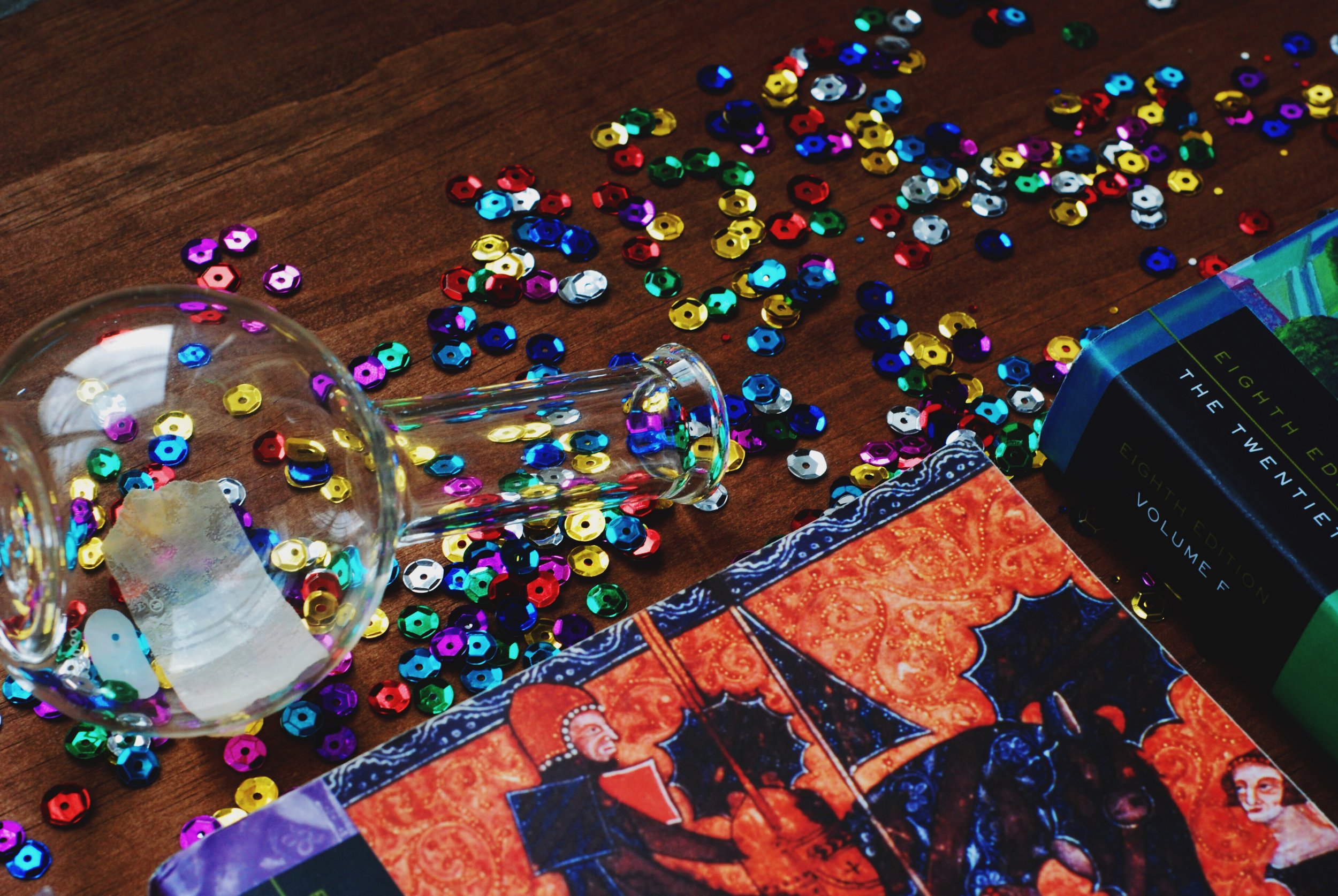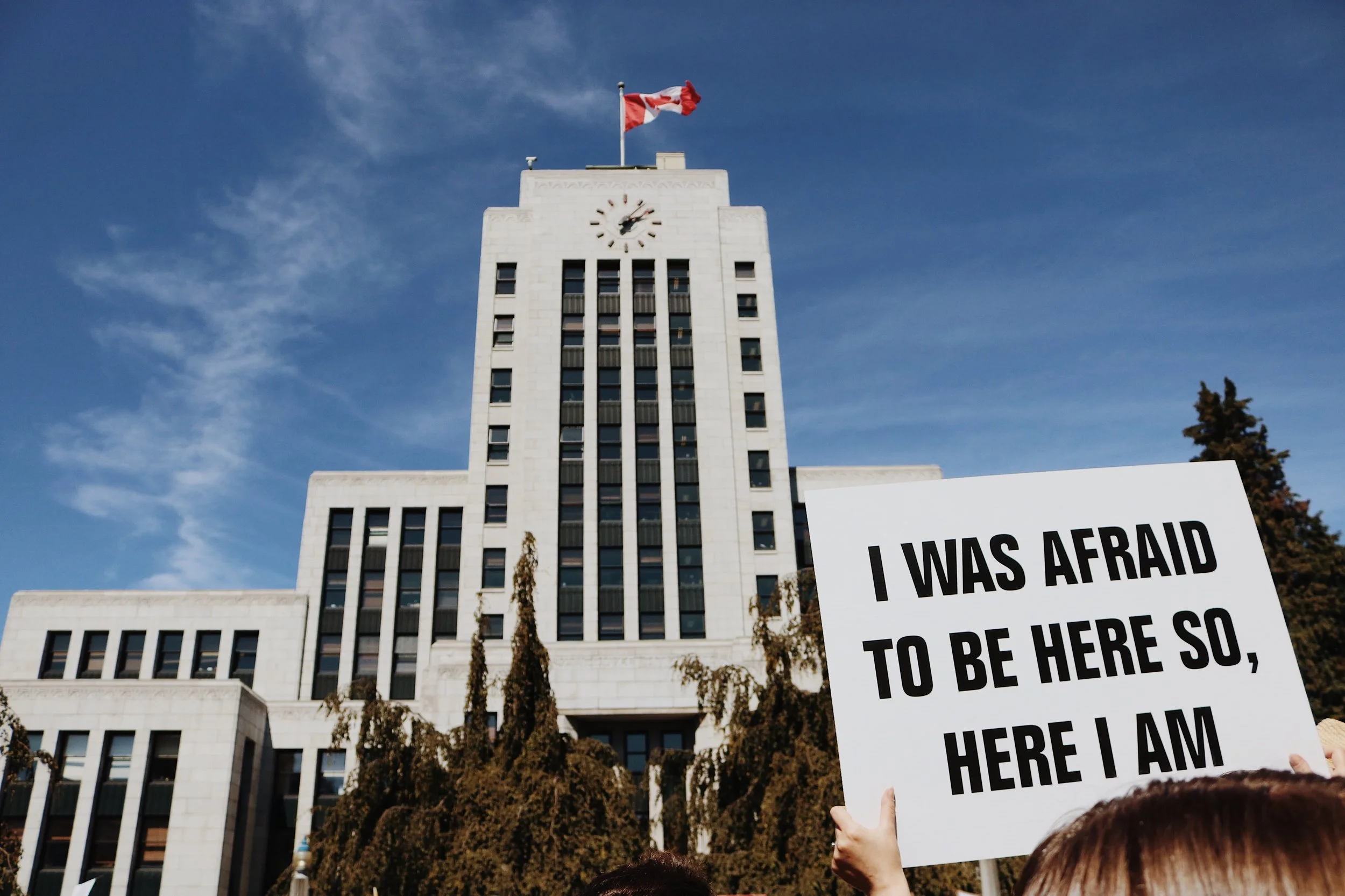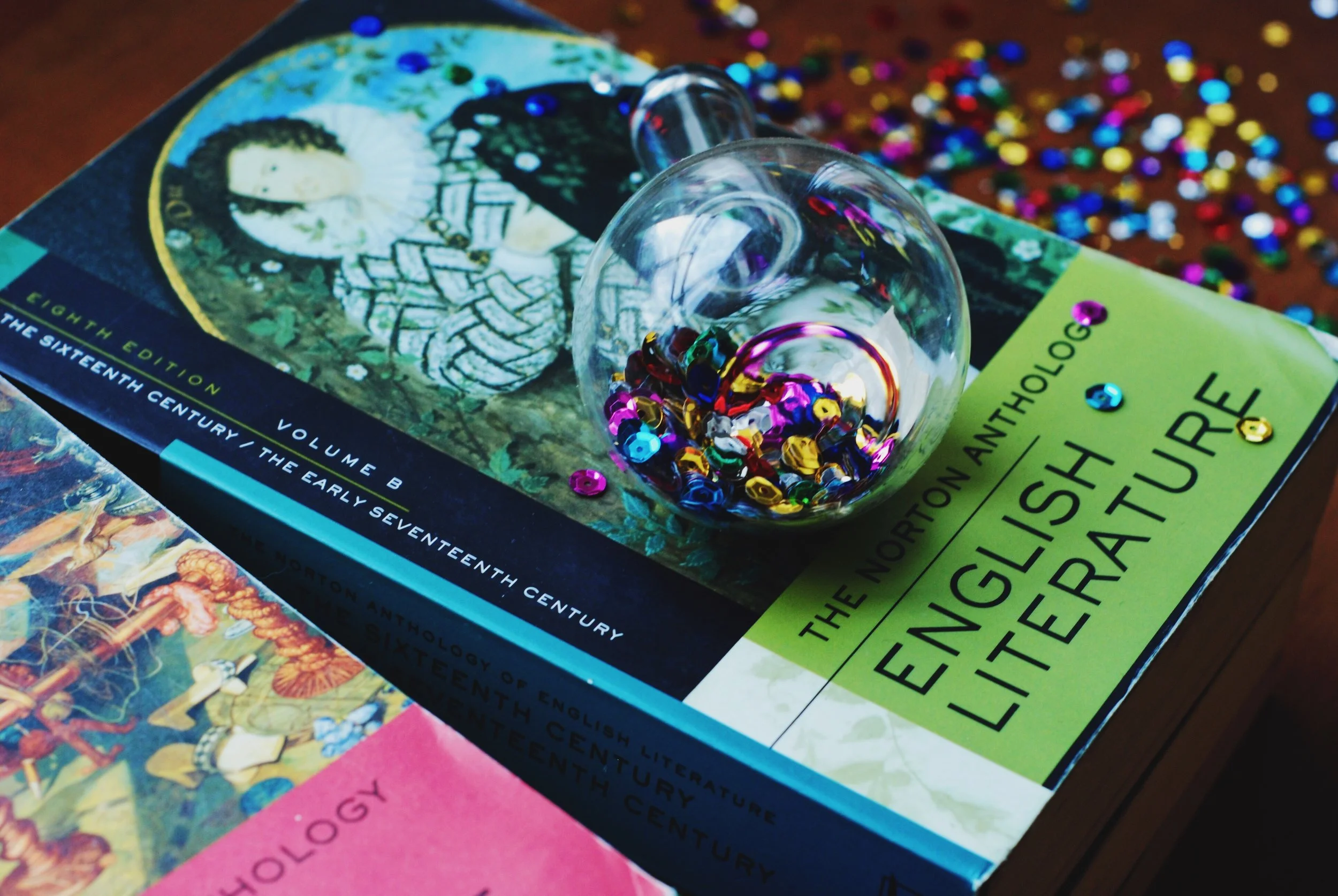An Artistic Scientist
On the day I graduated from my undergrad, I looked at the students in their oddly coloured Arts-Science robes and realized that I had gotten the wrong degree and that I knew what degree I should have gotten instead. I should have gotten an Arts-Science degree.
What I got instead, was a Bachelor of Science in Biochemistry, with a Minor in English Literature.
It's an odd combination, but I think it speaks a lot to who I am as a person.
The degree I should have gotten was physiology + political science. I figured that out on the day I graduated, and after saying "physiology + poli sci" for a few years I finally put it together that what I was really implying was Public Health, and that my second degree, a Masters of Health Administration (basically a degree in how to properly manage healthcare in Canada) does actually make good sense.
Biochemistry + English
I spent a lot of my time bouncing around between classes where the professor would lead discussion on the value of education for education's sake (ahem- English) and classes where the professor would talk about the pros and cons of investing your time in cancer or cosmetics (betterment of society or money) (ahem- Biochem.)
If you've never heard the song What do you do with a BA in English?, take a moment and listen. It pretty much sums up all the fears + hopes of an Arts student. I think. I'm speaking on behalf of Arts students here, as my minor doesn't make me an Arts student. I don't think you could as easily write the same song about a BSc in Biochemistry, unless it's for a student like me.
I just never got Biochemistry. It didn't make any sense to me. I got really good grades, but I have this crystal clear memory of sitting in the class staring so hard at the professor because I literally thought she was speaking a foreign language, when another student put up her hand and said "but have you thought about manipulating the gene with the [insert some crazy science phrase here]?" Oh. The prof was speaking high level science, a language I was supposed to be well-versed in. [as a note here, I did understand a lot of what was going on, but I could tell I was never going to be on the team to sequence a magical dream gene or something.]
Then for fun one day I took an English class and I fell in love. Discussing Huckleberry Finn + love-suicides + metaphors spoke to a piece of my heart that had been ignored while wading deep into the memorization of the chemical structure of every single amino acid. I killed it in my first class, but I didn't have as much fun later on when we would start writing short essays on every demon present in the 5 page long demon list in the poem Paradise Lost by Milton.
But it was sitting in an English forum where I started to really realize I think differently than a lot of people. First up I introduced myself as studying Biochemistry primarily, which always got me some looks. But the time I'm talking about was when the group was discussing a short story in American Literature, and the TA asked us if we had an opinion on "why we never saw the dad commit the crime in the story." Everyone had to give their opinion and as we went around the circle, student after student gave what felt like a very fancy and intimidating answer, talking about how "because the author saw time as a construct and not as fact, the timelines of the crime didn't have to line up with the story line and so we didn't need to see the crime to know it had taken place." When it came to my turn I was overcome with the desire to say what I thought even though I could tell it was just too simple and everyone was going to criticize me. I said "I actually think it's because it's told from the point of the view of the kid and as long as we never see his dad committing a crime we can give him the benefit of the doubt, just like a kid would." gulp. panic.
"Yes," said the TA. "I agree. I think that is exactly why he doesn't tell us."
I think I am an unusual thinker. I think like a scientist + a poet. I search for the beauty in things but often like them to be beautiful in their simplicity + to be clear. I like clean lines + sparkles.
And while my degree didn't make the most perfect sense it gave me one of the biggest gifts I will ever receive.
My critical thinking skills.
Both sets of classes, the pipettes + the metaphors taught me to question, and taught me to look at a situation from more than one angle. To tackle things with precision, and paradoxes, with cutting accuracy, and wild world views.
Through my degree I could feel my desire to question, to never accept things as they are told, to go against the flow, to speak my heart, to ask for clarification, to search out more facts, to find more opinions, to debate and prepare grow. That time moving away from home, learning to do my own laundry and cook + have freedom to explore my city + to spend endless, countless hours silently in a library or in a classroom filling my mind with facts + figures + writing + rewriting, were 4 years filled with so much personal growth words cannot possibly capture it. And my heart feels full thinking of me in my early twenties writing the flow of hydrogens over + over again + then treating myself to a walk home on the busy street to see the other people who were out at parties instead of studying until 1 am.
I believe questioning and understanding are skills that needs to be practiced, and my degree made me practice those skills until I got really good at them. Yes, a lot of my degree was rote memorization, but a lot of it asked me seek and credit differing opinions, to demonstrate how what we know has evolved with our human development, and to pose scientific questions and test theories to see if they hold up to scrutiny and have valid sources.
I keep growing. I've changed a lot and people tell me especially in the past few years they can see a massive difference in me. But my ability and skill to question, I'm pretty sure I can find the root of that in my undergraduate studies.
Beauty in Scientific thought
My friend and I just recently had a discussion on our favourite scientific principles, and she said hers was the second law of thermodynamics, which says that entropy, or the degree of disorder or uncertainty in a system, is always increasing unless you add energy to it. She says it's a defining point for her because she puts energy into her life to keep it ordered and we all need to do that. I love the same law because of this-
“Anything is possible. I could theoretically get up and fly around the room right now. It’s just very, very unlikely.”
That just feels like a poignant way to end this. Science isn't really just a science. At a high level, it's still open to interpretation + it can open up your mind + two people can love the same theory for the exact opposite reasons. The second law of thermodynamics teaches us that we need to invest energy in our world + that literally anything is possible at the same time. Science gives us a lot of hard facts + vitally important ways to understand how our world actually works. Arts gives us the ability to talk about + record our energies + dreams. Both arts + science challenge us to remember everything we as humans have already accomplished + destroyed + everything we can in theory do in the future.
I am so proud of my mind + all the work I've put into it. I love thinking + being challenged. I am so happy that I got the degree I got even though it didn't make any sense at the time.
the politics of learning
On a political note, I believe that funding higher education and making sure people from all different backgrounds are able to access post secondary school is incredibly important. Funding arts, and making sure scientists and journalists are able to share their studies and stories in a timely manner is vital to creating a vibrant society. Politicians should not be policing people who are trying to share what they have learned through hard work and research, who have questioned the status quo and then had their work reviewed and tested. If we want to keep accomplishing things and moving forward we need well-educated, informed citizens who are able to access the work of those who have dedicated their lives to learning. Even in Canada, access to school and information has been hampered on many occasions. Make sure you're voting for people who will place education as a priority. and make sure you vote! Not everyone needs to get a degree, not even close to what I'm saying. But I think we should all be able to choose to get one if we want, and that we should all have access to the information those institutes of higher learning are working so hard to find out for us.
























Two wonderful and inspiring women have passed away this year. They reminded me of the importance of love.